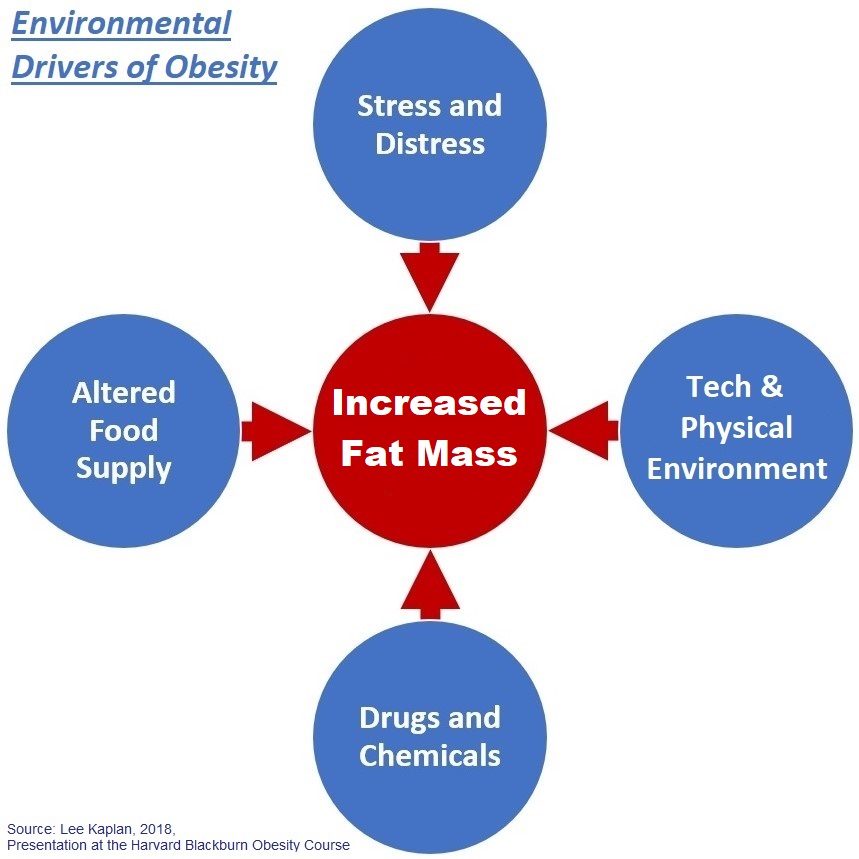
Making the Healthy Choice the Easy Choice
 Can we please retire the mantra of making the healthy choice the easy choice? It’s a great concept. Maybe it’s even a good marketing tagline…if you’re a food marketer. But for reducing obesity, it seems more and more like Eat-Less-Move-More version 2.0.
Can we please retire the mantra of making the healthy choice the easy choice? It’s a great concept. Maybe it’s even a good marketing tagline…if you’re a food marketer. But for reducing obesity, it seems more and more like Eat-Less-Move-More version 2.0.
Rather than pointing fingers at people for making “unhealthy choices,” we’ve moved to assuming that they can’t make good choices. So we’ll push those people into making the choices we want for them. Or nudge them.
Unfortunately the only question we’re asking is “did our nudges make them do what we want?” But the question we should asking is “are these nudges bringing better health?”
If we’re not bringing better health, are we helping or harming the folks we want to nudge?
The Question of Health Equity
In the Journal of Medical Ethics, Timothy Wilkinson considers obesity as a condition associated with social and economic disparities. He writes that people affected by obesity and disparities already have limited options. He points out that many of the policies intended to prevent obesity also serve to further limit their options. But taking away choices from people with limited choices only makes sense if we can be sure that the problem is one of bad choices. He concludes:
The evidence is thin but implies that introducing preventive regulations for the sake of equity would be at least premature.
Is Obesity Really a Disease of Choice?
Let’s make the healthy choice the easy choice is the mantra that powered Michelle Obama’s Let’s Move! campaign. But if we rely upon this ethic to reverse the health impact of obesity, we are assuming that obesity is simply a problem of bad choices. We’re merely shifting the focus from blaming individuals for bad choices to nudging whole populations toward better choices.
Bad choices are not the cause of every problem and thus, nudges are not always the answer. For example, nudging people to drive more safely did not bring dramatic reductions in motor vehicle deaths. Safer cars did.
 Likewise, Frank Pasquale writes that nudges will not solve the problem of obesity because obesity is not a problem of undisciplined individuals. It’s a problem of a defective food supply.
Likewise, Frank Pasquale writes that nudges will not solve the problem of obesity because obesity is not a problem of undisciplined individuals. It’s a problem of a defective food supply.
He’s right, but he’s underestimating the problem. In fact, we’ve also built a world that keeps us from moving routinely through the day. Drugs and chemicals push our bodies to store more energy as fat. Stress and distress do the same thing.
The Task at Hand
Making the healthy choice the easy choice is a nice idea. But it’s not enough to reduce the health impact of obesity. To do that, we must become more objective about the problem, more curious about what causes and reduces it, and more caring about the people affected.
Comforting mantras are simply a distraction from the task at hand.
Click here for Wilkinson’s essay, here for more from Pasquale. For more on the limits of nudging, click here, here, and here.
International Women’s Day, photograph © UN Women / Ryan Brown/ flickr
Subscribe by email to follow the accumulating evidence and observations that shape our view of health, obesity, and policy.
May 27, 2019

May 28, 2019 at 8:02 am, Mary-Jo said:
Becoming more caring is most important, IMO, and that begins with providing access to the support and treatment for people with obesity and for people with a strong predisposition to obesity who are already overweight. People need help, more than ever, to choose healthier options for their nourishment, for pain management, for getting and staying active respective of their means and other individual circumstances. Greater access to more effective, efficient, supportive primary care that includes multidisciplinary professionals — MDs, nurses, dietitians, occupational therapists, physical therapists, psychologists, sports trainers — would help guide, treat, preempt comorbidities for this complex disease.